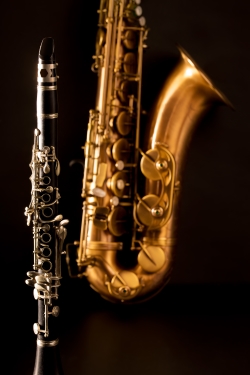
Our aims for pupils at 1st 4 Reeds.
Experience has taught us that teaching our pupils how to produce a good quality sound from the outset produces a better musician and holds the interest of the pupils much longer. Where children are involved, the experience is better not only for the child but for the parent too. We all know that old but very true saying, "practice makes perfect"; if everyone involved in the pupils' progress is happier with the sound produced it really does make for a better learning experience for all.
Pupils that learn with 1st 4 Reeds will learn about their chosen instrument with a little history and some of the technical knowledge in how the sounds are created. All of our pupils are encouraged to do some of their own research to gain a wider understanding of their chosen instrument, in the styles of music and in many cases why it was written. We believe this to be the key factor that make beginners into accomplished musicians and performers.
Although we use classical music as a base for building technical ability and musical capabilities, we encourage our pupils to learn and play using a wide range of musical styles. It is worth remembering that within each style of music, in line with historical changes in musical structures, there are many types of music. As an example, in jazz you would see a range of music such as dixieland, traditional, swing and modern. 1st 4 Reeds pupils will be encouraged to investigate these styles and types to estabblish preferences, in terms of both listening and performing.
At 1st 4 Reeds we recognize the busy lives that everyone now lives, particularly children. Expectations for adults both at home and at work is such that free time has become quite short and a luxury to have. Schools are pressured to provide increasing amounts of homework for their studnets to keep up with the general educational standards.
It is for this reason that we provide lessons on a fortnightly basis which are 1 hour in length. This does mean that our pupils need to learn to manage their free time to include a sensible amount of practice time each day. One of the many benefits to this process is that pupils will have a much wider range of music to practice over a longer period of time which helps to sustain interest and enthusiasm.
Lessons are generally provided in the early part of an evening between 6pm and 8pm, with the younger pupils placed at the earlier times. Pupils that elect to study for graded examinations may require additional lessons as exam dates become closer, these additional lessons would be arranged seperately.




